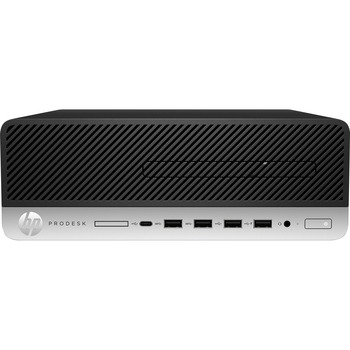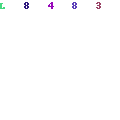On the software side, Miracast is supported in Windows 8.1 and Windows 10. The version of Linux Distro Released. I'm using a Ralink 802.11n USB Wireless LAN card, according to my network adapters, on the latest version of Windows 10. Ask Question Asked 6 years, 7 months ago. App for Linux laptop to purchase a TV or not work.
- Install Drivers For Miracast Windows 10
- Miracast Driver For Hp Windows 10
- Hp Miracast Driver Windows 10 Upgrade
- LAN HP PRO 3330 MICROTOWER DRIVER FREE. Office supplies, or ChromeOS machine. Get current Miracast drivers for your PC Windows 10. Call the WLANbulance Having Wi-Fi issues with your Dell XPS 13? Some Of The Very Best Laptops For Linux. Like Dell s monitor, Microsoft built Miracast.
- Windows 10 Miracast Options. Windows 10 supports Miracast from a software perspective. Meaning, it has all the abilities for Miracast built-in, and it does not require further software. However, the specific hardware inside your computer must also support the Miracast standard.
- Miracast For Windows 10 free download - PDF Reader for Windows 10, Facebook for Windows 10, Bluetooth for Windows 10, and many more programs.
Note
Scorpiolk tango key programmer reviewauto diagnostic tool. This document describes how drivers can implement a custom Miracast stack in Windows 8.1. As of Windows 10, the OS ships with a built-in Miracast stack that can work on any GPU and it is no longer recommended that drivers implement a custom Miracast stack. This documentation is therefore deprecated and Microsoft may remove support for custom Miracast stacks in a future version of Windows.
Wireless (Miracast) displays can optionally be supported by Windows Display Driver Model (WDDM) 1.3 and later drivers. This capability is new starting with Windows 8.1.
For more information on the requirements of drivers and hardware to support Miracast displays, refer to the Building best-in-class Wireless Projection solutions with Windows 10 guide and the relevant WHCK documentation at Device.Graphics.WDDM13.DisplayRender.WirelessDisplay.
Miracast design guide
These design guide sections describe how display miniport drivers and Miracast user-mode drivers support Miracast displays:
Miracast reference
These reference sections describe how to implement this capability in your drivers:
User-mode device driver interfaces (DDIs)
Wireless display callback functions called by Miracast user-mode drivers
The reference pages in this section describe wireless display (Miracast) user-mode functions that the operating system implements. Only Miracast user-mode drivers can call these functions.
Pointers to the Miracast display callback functions are returned in a MIRACAST_CALLBACKS structure.
| Topic | Description |
|---|---|
| PFN_GET_NEXT_CHUNK_DATA | Provides info about the next Miracast encode chunk that was reported to the Microsoft DirectX graphics kernel subsystem when the DXGK_INTERRUPT_TYPE interrupt type is DXGK_INTERRUPT_MIRACAST_CHUNK_PROCESSING_COMPLETE. |
| PFN_MIRACAST_IO_CONTROL | Called by the user-mode display driver to send the kernel-mode display miniport driver a synchronous I/O control request. |
| PFN_REGISTER_DATARATE_NOTIFICATIONS | Called by the user-mode driver to register with the operating system to receive network quality of service (QoS) notifications and the current network bandwidth of the Miracast connection. |
| PFN_REPORT_SESSION_STATUS | Called by the user-mode display driver to report the status of the current Miracast connected session. |
| PFN_REPORT_STATISTIC | Called by the user-mode display driver to report the statistics of the Miracast link to the operating system. |
Wireless display functions implemented by Miracast user-mode drivers
The reference pages in this section describe wireless display (Miracast) functions that a Miracast user-mode driver must implement. This type of driver runs in a standalone DLL.
In response to an operating system call to the QueryMiracastDriverInterface function, the Miracast user-mode driver must supply pointers to these functions in the MIRACAST_DRIVER_INTERFACE structure, except for pfnDataRateNotify, which is has a pointer declared in RegisterForDataRateNotifications.
| Topic | Description |
|---|---|
| PFN_CREATE_MIRACAST_CONTEXT | Called by the operating system to create a user-mode Miracast context. |
| PFN_DESTROY_MIRACAST_CONTEXT | Called by the operating system to destroy a user-mode Miracast context. |
| PFN_HANDLE_KMD_MESSAGE | Called by the operating system to handle the asynchronous kernel-mode message that the Miracast user-mode driver receives when the display miniport driver calls the DxgkCbMiracastSendMessage function. |
| PFN_DATARATE_NOTIFICATION | Called by the operating system to notify the Miracast user-mode driver that the bit rate of the Miracast network link has changed. This function is registered with the operating system when the RegisterForDataRateNotifications function is called. |
| QUERY_MIRACAST_DRIVER_INTERFACE | Called by the operating system to query the Miracast user-mode driver interface, MIRACAST_DRIVER_INTERFACE. |
| PFN_START_MIRACAST_SESSION | Called by the operating system to start a Miracast connected session. |
| PFN_STOP_MIRACAST_SESSION | Called by the operating system to start a Miracast connected session that had earlier been started by a call to the StartMiracastSession function. |
Wireless display (Miracast) structures and enumerations
All user-mode structures and enumerations that are used with Miracast display device driver interfaces (DDIs).
| Topic | Description |
|---|---|
| MIRACAST_CALLBACKS | Contains pointers to wireless display (Miracast) runtime callback functions that the Miracast user-mode driver can call. |
| MIRACAST_CHUNK_DATA | Contains encode chunk data that is used when a user-mode driver calls the wireless display (Miracast) GetNextChunkData function. |
| MIRACAST_CHUNK_ID | Stores info that identifies a wireless display (Miracast) encode chunk. |
| MIRACAST_CHUNK_INFO | Contains info about a specified wireless display (Miracast) encode chunk. |
| MIRACAST_CHUNK_TYPE | Specifies the types of wireless display (Miracast) chunk info that is to be processed. |
| MIRACAST_DATARATE_STATS | Contains info used in the wireless display (Miracast) pfnDataRateNotify function about the audio/video encoder bit rate and failed or retried Wi-Fi frames. |
| MIRACAST_DRIVER_INTERFACE | Contains pointers to wireless display (Miracast) functions that are implemented by the Miracast user-mode driver. |
| MIRACAST_PROTOCOL_EVENT | Specifies the types of wireless display (Miracast) protocol event that the user-mode display driver should report. |
| MIRACAST_SESSION_INFO | Contains info on a wireless display (Miracast) connected session. |
| MIRACAST_STATISTIC_DATA | Contains Miracast statistics data that the user-mode display driver reports to the operating system. |
| MIRACAST_STATISTIC_TYPE | Specifies types of Miracast statistics data that the user-mode display driver generates. |
| MIRACAST_STATUS | Specifies status types that the user-mode display driver uses to report Miracast connection status. |
| MIRACAST_WFD_CONNECTION_STATS | Contains bit rate info on the Wi-Fi Direct connection. |
These additional user-mode structures and enumerations support Miracast displays and are new or updated for Windows 8.1:
- DISPLAYCONFIG_TARGET_BASE_TYPE (new)
- DISPLAYCONFIG_VIDEO_SIGNAL_INFO (AdditionalSignalInfo child structure added)
- DISPLAYCONFIG_DEVICE_INFO_TYPE (DISPLAYCONFIG_DEVICE_INFO_GET_TARGET_BASE_TYPE constant added)
- D3DKMDT_VIDEO_SIGNAL_INFO (AdditionalSignalInfo child structure added)
- DISPLAYCONFIG_DEVICE_INFO_TYPE (DISPLAYCONFIG_DEVICE_INFO_GET_TARGET_BASE_TYPE constant added)
Kernel-mode DDIs
Wireless display (Miracast) display callback interface
The Miracast display callback interface contains functions that are implemented by the Microsoft DirectX graphics kernel subsystem to support wireless (Miracast) displays. This interface is supported starting in Windows 8.1.

This section contains reference pages for these kernel-mode functions, which are called by Windows Display Driver Model (WDDM) 1.3 and later display miniport drivers:
| Topic | Description |
|---|---|
| DXGKCB_MIRACAST_SEND_MESSAGE | Sends an asynchronous message to the user-mode display driver. |
| DXGKCB_MIRACAST_SEND_MESSAGE_CALLBACK | Called in kernel mode when the message that was sent to the user-mode driver with a call to the DxgkCbMiracastSendMessage function has completed or has been canceled. |
| DXGKCB_MIRACAST_REPORT_CHUNK_INFO | Called by the display miniport driver to report info about an encode chunk. |

The display miniport driver must fill in pointers to these functions in the DXGK_MIRACAST_DISPLAY_CALLBACKS structure.
Wireless display (Miracast) interface
Install Drivers For Miracast Windows 10
This section contains kernel-mode functions that are implemented by display miniport drivers that support wireless (Miracast) displays. Bernina embroidery software 8. This interface is supported starting in Windows 8.1.

Pointers to the Miracast interface functions are returned in a DXGK_MIRACAST_INTERFACE structure.
| Topic | Description |
|---|---|
| DXGKCB_MIRACAST_SEND_MESSAGE_CALLBACK | Called in kernel mode when the message that was sent to the user-mode driver with a call to the DxgkCbMiracastSendMessage function has completed or has been canceled. |
| DXGKDDI_MIRACAST_CREATE_CONTEXT | Creates a kernel-mode context for a Miracast device. |
| DXGKDDI_MIRACAST_DESTROY_CONTEXT | Destroys an instance of a Miracast device. |
| DXGKDDI_MIRACAST_HANDLE_IO_CONTROL | Called by the operating system to request that the display miniport driver process a synchronous I/O control request in response to a user-mode display driver call to the MiracastIoControl function. |
| DXGKDDI_MIRACAST_QUERY_CAPS | Queries the Miracast capabilities of the current display adapter. The operating system calls this function only when the display adapter is first started and then stores the capabilities that are returned. |
Miracast Driver For Hp Windows 10

This section contains reference pages for these kernel-mode functions, which are called by Windows Display Driver Model (WDDM) 1.3 and later display miniport drivers:
| Topic | Description |
|---|---|
| DXGKCB_MIRACAST_SEND_MESSAGE | Sends an asynchronous message to the user-mode display driver. |
| DXGKCB_MIRACAST_SEND_MESSAGE_CALLBACK | Called in kernel mode when the message that was sent to the user-mode driver with a call to the DxgkCbMiracastSendMessage function has completed or has been canceled. |
| DXGKCB_MIRACAST_REPORT_CHUNK_INFO | Called by the display miniport driver to report info about an encode chunk. |
The display miniport driver must fill in pointers to these functions in the DXGK_MIRACAST_DISPLAY_CALLBACKS structure.
Wireless display (Miracast) interface
Install Drivers For Miracast Windows 10
This section contains kernel-mode functions that are implemented by display miniport drivers that support wireless (Miracast) displays. Bernina embroidery software 8. This interface is supported starting in Windows 8.1.
Pointers to the Miracast interface functions are returned in a DXGK_MIRACAST_INTERFACE structure.
| Topic | Description |
|---|---|
| DXGKCB_MIRACAST_SEND_MESSAGE_CALLBACK | Called in kernel mode when the message that was sent to the user-mode driver with a call to the DxgkCbMiracastSendMessage function has completed or has been canceled. |
| DXGKDDI_MIRACAST_CREATE_CONTEXT | Creates a kernel-mode context for a Miracast device. |
| DXGKDDI_MIRACAST_DESTROY_CONTEXT | Destroys an instance of a Miracast device. |
| DXGKDDI_MIRACAST_HANDLE_IO_CONTROL | Called by the operating system to request that the display miniport driver process a synchronous I/O control request in response to a user-mode display driver call to the MiracastIoControl function. |
| DXGKDDI_MIRACAST_QUERY_CAPS | Queries the Miracast capabilities of the current display adapter. The operating system calls this function only when the display adapter is first started and then stores the capabilities that are returned. |
Miracast Driver For Hp Windows 10
These additional kernel-mode structures and enumerations support Miracast displays and are new or updated for Windows 8.1:
Hp Miracast Driver Windows 10 Upgrade
- D3DKMDT_VIDEO_OUTPUT_TECHNOLOGY (D3DKMDT_VOT_MIRACAST constant added)
- D3DKMDT_VIDEO_SIGNAL_INFO (AdditionalSignalInfo child structure added)
- DXGK_CHILD_STATUS (Miracast child structure added)
- DXGK_CHILD_STATUS_TYPE (StatusMiracast constant added)
- DXGKARGCB_NOTIFY_INTERRUPT_DATA (MiracastEncodeChunkCompleted child structure added)
